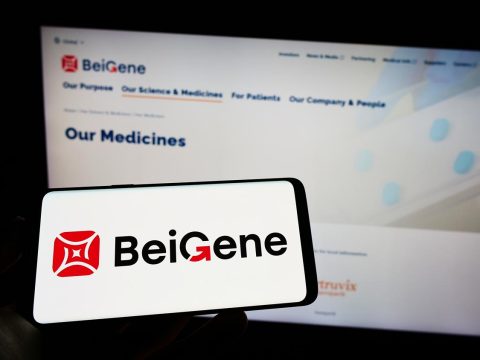Advertisment
What the papers say – weekly digest (24/11/23)

Your weekly digest of the top healthcare stories, covering news published from 20/11/2023 – 24/11/2023.
Daily Express
The NHS has backtracked on plans to offer a life-saving Covid drug to the elderly and obese this winter, meaning millions of doses already purchased may go to waste. The treatment, called Paxlovid, is given as soon as possible after testing positive for Covid, and prevents patients from falling seriously ill and ending up in hospital with the virus. It is currently offered to people with conditions that mean their bodies do not respond to the Covid vaccines, leaving them at serious risk. This includes blood cancer patients as well as those with an organ transplant. In May the NHS spending watchdog, the National Institute for Health and Care Excellence (NICE), recommended offering the drug to people over 70, the overweight and those with diabetes or heart disease. This would increase the number of people eligible to take Paxlovid from around 4 million to 15 million. But NHS England has appealed this recommendation, arguing that the move would be prohibitively expensive, costing around £20 million each year. Instead the health service plans to extend the treatment eligibility to patients aged over 85. It will also include those in the newly recommended group but they must also be living in a care home or already hospitalised with an unrelated issue.
A ‘’minister for men’’ is needed to tackle the scourge of male suicide, according to a survey. In the International Men’s Day poll, 51 per cent of adults want the new post created. Conservative MP Nick Fletcher, a leading campaigner for a men’s minister, has secured a debate in Parliament to discuss the issue. The top three problems for a minister to focus on would be reducing suicide, chosen by 33 per cent, reducing men’s depression (24 per cent) and prostate cancer (20 per cent). The most recent figures for England and Wales show that men accounted for around three-quarters of suicides. The rate of 16 deaths per 100,000 is in stark contrast to the female rate of 5.5 deaths.
Plastic surgeons have called for added safety warnings on deodorant cans after a viral TikTok challenge has led to youngsters inflicting cold burns on their skin. The wounds are caused by very low temperatures – and is better known as frostbite. A 15-second burst of aerosol deodorant held just two inches away has been shown to reduce skin temperature by more than 60C – enough to cause the extreme burns. Almost 70 people – some as young as ten – have found themselves in the Royal Victoria Infirmary (RVI) in Newcastle upon Tyne with such injuries. Some required plastic surgery to repair their damaged skin. RVI medics claim self-inflicted cold burn injuries were seen once every two months on average. About two-thirds were female and more than half were aged between ten and 30, according to results set to be presented at the British Association of Plastic, Reconstructive and Aesthetic Surgeons’ annual meeting later this month.
Individuals who regularly procrastinate end up with more health problems than those who get on with things, according to a study. Researchers asked 379 Canadian students how strongly they agreed with statements such as ‘I generally delay before starting work I have to do’ or ‘I am continually saying ‘’I’ll do it tomorrow’’’. The same people, who were monitored over five months, were asked about stress and minor health problems, such as colds, flu, headaches and back pain. Those who tended to procrastinate reported experiencing these more. Professor Fuschia Sirois of Durham University, who led the study, said: ‘People who procrastinate aren’t generally lazy or bad at managing their time – more often they are afraid of failing at tasks, so put them off. The things they haven’t done prey on their mind and so they feel stressed. It is the stress which we think affects the immune system, leading to aches and colds.’ The study was in the British Journal of Health Psychology.
Rising numbers of people are arriving in the UK with diphtheria. Data shows 50 cases of the highly contagious bacterial disease – which is potentially fatal – were recorded among those who came here between January and November last year. The latest figures show 86 cases have occurred over the same period this year – a rise of 70 per cent. Seventy of those were in London and the south-east of England. Uk Health Security Agency (UKHSA) officials have now recommended a mass vaccination programme for all those in reception centres. People who had previously resided in one will also be offered a vaccine which cost £7.80 each. Tens of thousands of people could eventually be jabbed. The rise comes after a report last year linked the surge to the small boat crisis. The European Society of Clinical Microbiology and Infectious Diseases report for England used UKHSA figures and is based on genomic testing of hundreds of cases across 10 countries in Europe. Research led by Dr Helena Seth-Smith, of Zurich University, and Dr Sylvain Brisse, of the Pasteur Institute in Paris, found outbreaks across the Continent and the UK in the past year had been ‘’mostly linked to incoming migrants’’. Diphtheria is rare here due to vaccination introduced in 1942. Before this mass programme there were an average of 60,000 cases a year and 4,000 deaths.
The crisis in NHS dentistry is now playing havoc with children’s oral health, according to a survey. More than a quarter of parents say their children have at least one filling in baby teeth, and one in five say it’s more than two. The survey, by toothpaste firm Aquafresh, blamed a lack of education around oral hygiene – with two-thirds of patients admitting their children often go to school without brushing their teeth. But a lack of dentists may also be to blame. Just 44 per cent of children saw one in the past year, as thousands have left the NHS, creating so-called ‘dental deserts’.
VAT should be scrapped on life-saving defibrillators, Rishi Sunak has been told. More than 100 MPs from all parties have signed a joint letter to plead for the move in this week’s Autumn Statement. They warn the ‘’heart restart tax’’ can add up to £500 to the equipment’s cost and axing it would mean that ‘’for every five defibrillators, a community could have six’’. Signatories include former Home Secretary Dame Priti Patel and ex-Environment Secretary George Eustice.
The Daily Telegraph
Seeing a GP quickly is easier in Rwanda than Britain, a study has found. An international analysis of healthcare, including access to GPs, found that Britain is the third-worst country for quick access to a family doctor. Just 35 per cent of Britons were able to see a GP within 24 hours, compared with a global average of 67 per cent. People in Rwanda had an 87 per cent chance of seeing their doctor within the day, which was the second best rate anywhere. While almost one in five people in Britain have waited more than a week for a GP appointment, the study found 3 per cent of Rwandans had to wait longer than seven days. Only France and Canada ranked worse than Britain on both metrics in the Economist Impact global health inclusivity index. The index, which looked at countries of all economic statuses and from every continent, found that Turkey was the country where most people were seen within 24 hours, at 88 per cent.
British scientists have developed a treatment that could stop deadly liver disease in its tracks. The cutting-edge therapy is the first to treat cirrhosis, the scarring of liver tissue caused by heavy drinking, fatty diets and long-term infections from the viruses hepatitis B and C. Currently there are no drugs or treatments to stop or reverse this process. More than 10,000 people a year in the UK die from liver disease, and premature deaths have risen over 60 per cent in the past two decades. The treatment, developed at The University of Edinburgh, involves taking a blood sample from a patient and extracting white cells called monocytes. These are infection-fighting cells that normally live in the blood for a few days, then migrate to the body’s tissues to turn into macrophages – cells able to repair damaged tissue. Researchers used the monocytes to mass-produce macrophages in the lab, then injected them into the patient’s liver. Experts believe that patients suffering from severe liver cirrhosis produce fewer effective macrophages due to the damage the disease has caused. By preparing them outside the body, the researchers hope that the cells will be better at repairing the scarring and, ultimately, reverse the condition. Results presented last week at the annual American Association for the Study of Liver Diseases conference in Boston, US, showed out of 26 cirrhosis patients given the treatment, none experienced a significant worsening of their condition in the following year. But out of 24 other cirrhosis patients not given the new therapy, four worsened considerably and three died. Research leader Professor Stuart Forbes, a liver expert at The University of Edinburgh, said further tests are needed to be certain the drug stops or reverses cirrhosis in humans, but in animals it did undo some of the scarring. ‘We are encouraged by the results,’ said Prof Forbes. A company, Resolution Therapeutics, has been set up to develop the treatment and a larger UK trial is planned for 2024.
A charity that boasted of raising money for local hospitals donated just 10 per cent of funds to the NHS, its own accounts show. The Fundraising Regulator found the Hospitals Charity committed ‘’serious breaches’’, including false claims that ‘’every donation goes towards your local hospital’’. The charity, set up the year before the pandemic, urged donors to fundraise through skydiving and bake sales, telling the public: ‘’Your donations mean more equipment, beds and PPE at a time when it is vital, saving countless lives in your area’’. Analysis of the charity’s annual accounts shows that while it collected more than £223,000 from its formation in September 2019 to August last year, only £22,240 has been distributed to NHS services. The analysis, conducted by the Health Service Journal, found almost £105,000 was spent on ‘’the cost of generating funds’’ while £19,000 was spent on ‘’charitable activities’’, such as subscriptions, and depreciation of equipment. The Fundraising Regulator started an investigation after receiving 10 complaints about the charity. It found the charity had breached the code of practice in 11 ways, which included making misleading claims about where the donations would go.
A cervical cancer campaign has been branded ‘’offensive’’ for urging women not to keep their legs crossed. The ‘’Don’t Keep ‘Em Crossed’’ drive was also accused by users on the parenting website Mumsnet of ‘’erasing women’’ by referring to ‘’people’’ in its discussions about those who suffer from the disease. The campaign, which was launched by North West Cancer Research, was unveiled at Manchester Piccadilly train station with sculptures of crossed mannequin legs. An accompanying slogan said: ‘’One in three people aged 25-49 in the North West don’t attend their cervical screening.’’ Onlookers were angered by the ‘’crass’’ advert and said it ‘’objectified’’ women. Deborah Cameron, a feminist campaigner and professor of language and communication at the University of Oxford, said that it was ‘’1970s sexism in 21st-century fancy dress’’.
The NHS was pushed £3 billion over budget in the first half of the tax year by covering striking doctors’ shifts, a report has found. Consultants were regularly paid emergency rates upward of £3,000 a day to cover striking colleagues with some hospitals shelling out more than £6,000 on surgeons. The cost of strike action this year has surpassed £1 billion, but the Treasury has rejected pleas from the Department of Health to make up the shortfall. Taking into account inflation, overtime pay to tackle waiting lists and the logistical costs of planning strikes and rearranging appointments, the NHS was running a ‘’financial black hole’’ of about £3 billion by the end of last month, the Nuffield Trust think tank said. Experts at the Trust said the NHS was on course for an end-of-year deficit of £4.2 billion, but this figure would probably come down based on current plans to find savings. The NHS budget for 2023-24 is £168.8 billion, suggesting that the health service had spent almost £88 billion halfway through the tax year, rather than projected £84.4 billion.
Scientists may finally have solved a centuries-old mystery: why is it that some of us will suffer a splitting headache after drinking only a modest amount of red wine? The phenomenon appears to have first been recorded by Aurelius Cornelius Celsus, who wrote about medicine in ancient Rome. There was a certain type of sore head, he observed, that seemed to be brought on by wine. Since then generations of researchers have investigated possible causes of the infamous red-wine headache, which can strike after only a glass or two and is recognised by the International Headache Association as distinct from a normal hangover. A new study, published in Scientific Reports, suggests that the condition may be caused by a compound found naturally in grapes called quercetin. Found in many fruits and vegetables, quercetin is considered to be a healthy antioxidant. Mixed with alcohol, however, it may be less benign. ‘’When it gets in your bloodstream, your body converts it to a different form called quercetin glucuronide,’’ said Professor Andrew Waterhouse, a wine chemist at the University of California, and a co-author of the research. Through laboratory experiments, the researchers found that quercetin glucuronide impeded an enzyme that the body uses to break down acetaldehyde, a toxin formed after alcohol molecules are split apart. This rapid accumulation of acetaldehyde could plausibly explain red-wine headaches. The researchers now plan to test their theory by comparing red wines that contain a lot of quercetin with those that have little.
An environmentally friendly inhaler could cut carbon emissions from the medicine by 90 per cent, according to the drug developer GlaxoSmithKline. The propellant in the inhaler used by asthma sufferers accounts for half of the firm’s total carbon footprint, with each unit releasing the equivalent of 27kg of CO2. But early clinical trials of a new propellant show promise as an eco-friendly alternative that works just as well at delivering medication. Data shows that the new gas in the inhalers makes just 2kg of CO2 per unit, a reduction of about 90 per cent from the original’s carbon footprint, which is the same as driving 175 miles in a petrol car.
The Guardian
Firms are earning £53bn a year from UK sales of tobacco, junk food and excessive alcohol, and their consumption is contributing to Britain’s rising tide of illness, according to a new report. The figures prompted a coalition of health, medical and children’s organisations to demand an urgent crackdown on ‘’the irresponsible behaviour of health-harming industries’’. The government’s failure to properly regulate those industries is damaging public health, adding to the strain on the NHS and causing a £31bn hit to the economy, they added. They are making vast profits by bombarding consumers with relentless marketing and deliberately obstructing efforts by the government to restrict their activities, such as seeking to discredit scientific evidence of harm. The report was drawn up by health organisations and the economics consultancy Landman Economics. It is the first to estimate exactly how much money people in Britain are spending on ‘’risky consumption’’ – products that evidence shows are or can be bad for human health. It found that consumers spend a staggering £81.5bn a year on unhealthy products, from which the Treasury makes £28.8bn through VAT receipts. The research was undertaken by the Obesity Health Alliance, Alcohol Health Alliance and Action on Smoking and Health in conjunction with Landman Economics. They calculated that 28.8% of all food bought by UK households are foodstuffs which are unhealthy because they breach government guidelines for fat, salt or sugar. Those sales together earn the food industry £34.2bn. Similarly, 43.4% of all alcohol consumed in the UK is drunk by people not observing the government’s safe drinking guidelines of 14 units a week – and is thus potentially harmful – from which the alcohol industry makes £11.2bn. And all of the tobacco’s £7.3bn annual revenue is from sales of products that are known to kill half of those who use them, they found. One in eight (13%) of adults in England smokes, one in five (21%) drink more than the recommended 14 units a week maximum and 64% of adults are overweight or obese.
The NHS must rethink its plans to replace mental health counsellors with artificial intelligence (AI), experts have warned. Smartphone apps designed to support people with anxiety and depression are being rolled out in parts of England, and the software is even being offered to some patients stuck on NHS waiting lists as part of an ongoing trial. The interactive ‘chatbots’ help those with mental illness by guiding them through cognitive behaviour therapy – a form of talking treatment – as well as meditation and breathing exercises to ease their distress. But the initiative – first proposed by former Health Secretary Matt Hancock in June 2021 – has triggered alarm that some patients who need proper psychiatric care may resort to the apps instead of getting the help they need. And some experts fear the lack of human involvement could even exacerbate mental health issues in vulnerable people. The British Association of Counselling and Psychotherapy (BACP) has called on the NHS to instead focus on recruiting more staff. ‘We don’t believe AI can recreate and replace the human elements of therapy,’ says Martin Bell, BACP’s head of policy and public affairs.
Patients with a painful hernia that affects the stomach will soon receive a pioneering procedure that banishes the condition with little-to-no long term side effects. Thousands of people develop the problem every year, which occurs when part of the stomach pushes through the diaphragm and into the chest, triggering uncomfortable heartburn and bloating. Also known as a hiatus hernia, men over the age of 50 are most at risk and have historically been treated with invasive surgery involving multiple incisions in the chest. The treatment can also lead to lifelong side effects such as difficulty swallowing and internal bleeding. But the new 60-minute operation, carried out on the NHS for the first time earlier this month, involves just a single small incision – no larger than a centimetre – in the chest. The hernia is pushed out of the chest using a surgical device and the top of the diaphragm is tightened with stitches to stop the stomach rising again. Experts claim that patients who have struggled with agonising heartburn for decades see their symptoms ease just weeks later. ‘This is a game-changer for the treatment of stomach hernias,’ says Dr Rehan Haidry, consultant gastroenterologist at University College London Hospital and the first doctor in the UK to carry out the surgery. ‘It is less invasive than the current operation. This will become the go-to NHS treatment for this uncomfortable condition.’
A move to make contraceptive pills more accessible in England has been welcomed by experts, but they say provision of other highly effective methods as well as counselling must also increase to ensure women’s needs are met. This year, Prof Lesley Regan, leading gynaecologist and women’s health ambassador for England, said women’s access to contraception had been getting worse, resulting in a rise in unplanned pregnancies. Some contraceptives also help with gynaecological problems including heavy periods and the menopause, meaning poor access can have wider ramifications for women’s health. Exprets stress it is crucial women are given accurate information and counselling about the full range of contraceptives available so they can find the right method for them: not everyone wishes to use hormonal contraception while some experience unacceptable side-effects. The pills are to be made available on the NHS via high street pharmacies from next month.
More patients than ever are using NHS talking therapies to tackle their mental health issues. There has been an almost three-fold increase in just 10 years – soaring from 434,247 patient referrals for talking therapy in 2012/13 to a huge 1.2 million in 2021/2022. The cost of the service was over £776 million in England last year. Fewer people now suffer in silence – however, a rise in referrals has hit waiting lists. Marjorie Wallace, chief executive of mental health charity SANE, said: ‘’We have experienced in the last few years a surge in the number of people needing help for their mental health, with many increasingly more distressed than before the days of the pandemic.’’ The charity saw a 200 per cent rise in calls after Covid hit.
Forcing some medical staff to work through industrial action under new anti-strike laws could end up harming patient care, hospital trust leaders have said, as ministers claimed the measures would keep public services running over Christmas. NHS Providers, which represents hospital, mental health and ambulance trusts in England, said there was a significant risk the new legislation would damage relationships between staff and employers, which were already ‘’very challenged’’, in a way that could affect patients. In a submission to the consultation on minimum service levels in hospitals, it said: ‘’Our key concern is that rather than strengthening services as intended, the legislation proposed would worsen relationships between employers and staff, and between trusts and local union representatives, to the longer-term detriment of patient care.’’
The Times
Rishi Sunak will end the ‘’national scandal’’ of two million people who are out of work by forcing more benefit claimants to look for jobs, under plans announced in the autumn statement. Under the changes, hundreds of thousands of people with mobility and mental-health problems will be told to look for work that they can do from home. They face having their benefits reduced by £4,680 a year as ministers insist that they can no longer be ‘’written off’’ as incapable of working. The changes to the rules for claiming benefits will apply to all new claimants from 2025. As part of a ‘’carrot and stick’’ approach, existing claimants will be given a guarantee that they will not have their right to benefits assessed if they look for work. Sunak also said ‘’we can and we will cut taxes’’ after inflation halved. National insurance cuts are seen as the frontrunner for tomorrow’s autumn statement. Income tax cuts have also been under consideration but are thought to be more likely for the spring budget. Sunak made it clear that the existing benefits system was not ‘’sustainable’’. However, he also said that the government would be ‘’compassionate’’. The ‘’huge shift’’ towards working from home will allow people who struggle to leave the house to do jobs that would have been impossible a decade ago, ministers argue. The reforms are likely to be contentious among disability campaigners who have previously accused ministers of a ‘’cynical attempt’’ to reduce benefit payments and warned of huge anxiety for unwell claimants who are forced to look for a job.
An American technology company is set to win a £480 million contract to manage the data of millions of NHS patients. Palantir Technologies is on track to be awarded a five-year deal to run a data platform that promises to improve medical records by allowing information on patients to be shared between different parts of the health service. The NHS is expected to announce that the joint bid between Palantir and the Irish-American IT services and consultancy company Accenture has been successful. Palantir is a software company with ties to the United States defence industry and intelligence agencies and it has faced competition from the British start-up Quantexa. The NHS said: ‘’NHS England is conducting a fair and transparent procurement process for a supplier of the federated data platform, in line with public contracts regulations, and this process has not yet been concluded.’’
Rates of autism are higher in children born to parents who struggled with fertility, research shows. The study of 1.37 million children in Canada between 2006 and 2018, found 22,400 had autism diagnosed. Overall 87 per cent of parents had their children naturally, through unassisted conception and 10 per cent had ‘’subfertility’’, meaning it took them a relatively long time to conceive naturally and they sought advice. Another 3 per cent had fertility treatment such as IVF or artificial insemination (IU). Children born to parents with ‘’subfertility’’ were 20 per cent more likely to have autism diagnosed, and those born via IVF were 16 per cent more likely. The lead author, Dr Maria Velez, of Queen’s University in Canada, said: ‘’Our results show fertility treatments do not appear to introduce any measurable risk of autism compared with having subfertility alone.’’
Cases of bowel cancer may be being missed because as many as ten percent of home testing kits can’t be processed, it has been claimed. The faecal immunochemical tests (FITSs), which detect the tell-tale signs of blood in faeces, are sent to over-60s in England every two years. But analysis by the Southwestern Medical Center in Texas found that one in ten were ‘unsatisfactory’ for processing in labs. Old or low-quality stools, incomplete labelling or broken containers where the samples leaked were among reasons listed for failure in the study. And just 40 per cent of people whose tests did not work were followed up with another FIT or colonoscopy. The Government is striving to make more men complete the test, as a third of those sent one do not return it.
The body representing the pharmaceuticals industry has reached an NHS branded sales deal with the government after months of disputes and warnings that a British growth sector was losing ground internationally. The new five-year agreement has been championed by ministers as saving the NHS £14 billion, improving access to cutting-edge treatments and giving incentivises for the development of innovative medicines. The Association of the British Pharmaceutical Industry cautiously welcomed it as a ‘’tough deal’’, but one that should allow the sector to grow faster than it had under the previous scheme. The deal comes before a meeting of chief executives and senior ministers at the biannual government’s life sciences council today (Tuesday). The drugs industry will invest £400 million over five years, including to support the NHS’s capacity for commercial clinical research and manufacturing.
Willow bark could be used to develop a class of antiviral drugs for common diseases such as Covid, scientists say. Researchers in Finland have found specially processed samples of extract have an effect unseen in current medical compounds made from the substance, such as salicylic acid, the forerunner to aspirin. Willow bark extract has been used as a homeopathic medicine for thousands of years to reduce pain and inflammation. Now scientists claim it has proven effective against two common types of virus with different structures – enteroviruses and coronaviruses – and could fight deadly diseases. Trials showed an extract of willow bark proved effective both on enveloped coronaviruses, which cause colds and Covid, and non-enveloped enteroviruses, which cause flu and meningitis. Prof Varpu Marjomaki of Jyvaskyla University, Finland – lead author of the study in Frontiers in Microbiology – said: ‘’The extracts acted through distinct mechanisms against different viruses. But they were equally effective in preventing spread of the enveloped as well as non-enveloped viruses, which is very encouraging.’’





